His autobiography “Porcelain”, introduces us this militant vegetarian, who defends animal rights, does not drink, smoke or take drugs, but confesses being addicted to porn.
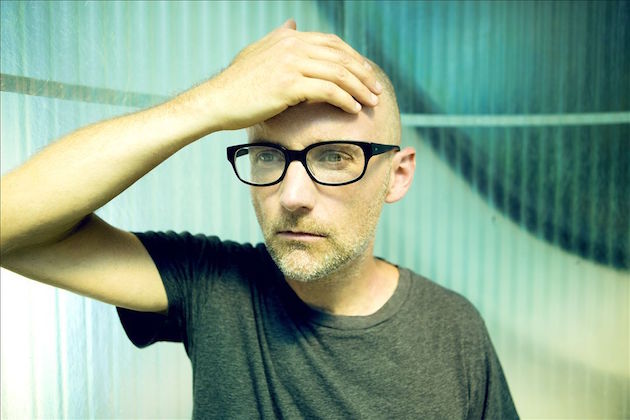 Moby's life is full of contradictions.
Moby's life is full of contradictions.
Moby, an icon of dance music, hip-hop and trance, the mixer, essayist, IT fanatic, soundtrack composer and tech-wizard, has just published his memoirs. His autobiography “Porcelain”, introduces us this militant vegetarian, who defends animal rights, does not drink, smoke or take drugs, but confesses being addicted to porn.
Moby claims to be all of this and more, as well as calling himself a Christian. He is branded by poverty, insecurity and emotional instability, but what should we make of this “Christian-vegan-porn-fan-environmentalist-Puritan-Calvinist”?
There is no doubt that our world seems to be increasingly complicated. Labels don’t seem to mean much anymore. Some labels are surprising, while others are entirely logical, but this man seems to fit into all the boxes. Look for a humanitarian cause and Moby is a supporter; think of a music genre and Moby will have done it; pick a brand, and Moby will have been responsible for its background publicity. But, who is the real Moby?
The descendant of the North-American nineteen-century author of puritan-Calvinist origins who wrote “Moby Dick”, Richard Melville Hall was born on 11 September 1965 in the New York district of Harlem. Nicknamed Moby as a child, his father died in a drink-driving accident when he was two. His mother then took him to Danbury, Connecticut, where she gave him a liberal education. Elizabeth Hall was a hard-working hippy, who smoked marijuana, painted and hung out with musicians. She took Moby to concerts, clubs, communes, spending the famous “summer of love” of 1969 in San Francisco.
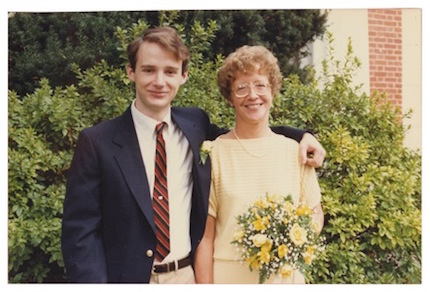 Moby was raised by his mother, his father died when he was two years old.
Moby was raised by his mother, his father died when he was two years old.
FROM WHITE WHALE TO TECNO MUSIC
At the age of 13, Moby learnt to play the guitar and two years later he formed his own New Wave style punk band. He called it the “Vatican Commandos”. He recorded his first album “Hit squad for God” when he finished secondary school in 1983. It was around the time that house music started up that he began working as a DJ, at the same time as he experimented with electronic sounds. Instinct, a new music label, offered him a contract and he started performing in nowadays non-existent clubs under the name “The Brotherhood”. This is one of his many pseudonyms, the most famous of which is Voodoo Child.
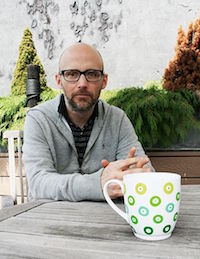 The name of Jesus appears regularly on the lips of Moby.
The name of Jesus appears regularly on the lips of Moby.In 1991 he unexpectedly got to the top of the charts in the United Kingdom with “Go”, a version of the soundtrack for the television series “Twin Peaks”. He then starting mixing the music of pop stars like Michael Jackson, Depeche Mode and the Pet Shop Boys. In 1995 he was signed on to a multinational, but produced a strange album mixing trance and punk, interspersed with gentle, almost acoustic, songs. His album “Everything is wrong” was a disappointment for his dance floor fans, mixing aggressive guitar sounds with relaxing instrumental background music.
In 1997 he produced the album “Animal Rights” in the midst of serious anxiety attacks. His depression worsened when his mother was diagnosed with lung cancer, from which she died some time later. At that time he produced the orchestral under his Voodoo Child pseudonym, called “The End of Everything”. He continued with film sound tracks, but he considered leaving music, in view of the repeated failure of his previous albums. Sitting on a bench in a New York park in 1999, he considered studying architecture, without knowing that he had just made his greatest hit, “Play”, an original album combining Blues and gospel a cappella music with electronic arrangements that has since been heard in countless television ads. This is as far as the first book of his memoires takes us.
IN LOVE WITH CHRIST
The name of Jesus is frequently heard on Moby’s lips. He sings to the Son of God and appreciates the old gospel songs.
He is reputed to be a Christian, but as with everything that he says, there is a mixture of truth, publicity, conviction and confusion. He says that he “loves Christ”, but in the same interview with the LA Weekly in 1999, he wishes to make it clear that he isn’t a born-again Christian. As he “is nothing”, Moby does not want to define himself in any way, not seeing why she should and what purpose it would serve. On the one hand he says that he is not a Christian, but at the same time claims to “love Christ”. What should we make of that?
In 1996 Moby produced a promotional album in the United Kingdom which contained an interview in which they asked him: “Why do you thank Jesus in your album?” His reply was: “In my own strange way, I'm a Christian, in that I really love Christ, and I think that the wisdom of Christ is the highest, strongest wisdom I've ever encountered, and I think that his description of the human condition is about the best description or understanding of the human condition I've ever encountered... I wouldn't necessarily consider myself a Christian in the conventional sense of the word, where I go to church or believe in cultural Christianity, but I really do love Christ and recognize him in whatever capacity, as I can understand it, as God”.
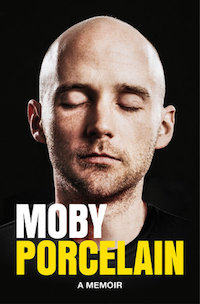 Moby shows himself in his memoir as a fragile person, affected by poverty and his insecurities.
Moby shows himself in his memoir as a fragile person, affected by poverty and his insecurities.Although his education had a certain amount of Presbyterian influence, Moby told the Rolling Stone magazine that he discovered Christianity, as well as masturbation, when he was thirteen. When he was studying philosophy at the University of Connecticut, he developed a faith that was somewhat deeper and less motivated by guilt. He lived alone in a run-down street in Stamford, surrounded by churches. He liked to listen to the gospel music on Sunday mornings but was afraid to go into the service. This was until he became friends with a youth pastor who encouraged him to read the New Testament. It is at this point that he says that he fell in love with Christ and his teaching. His first reaction was to become what he calls a “conservative conventional Christian”. He read the Bible, attended a congregational church and tried to convert people.
EVERYTHING IS SO COMPLICATED
At the beginning of the 1990s, Moby said that he had started to see the world as it really is: a very complicated place. However much he loved Christ and admired his teaching on humility, forgiveness, compassion and peace, he decided that he could no longer identify himself as a Christian, because calling himself a Christian implied a certainty that he did not have. Asked by the Spanish newspaper El País why his life was so full of contradictions, Moby’s answer was that he was a real Christian, but that he also liked to get drunk and have sex, given that the world in which we live is very complicated.
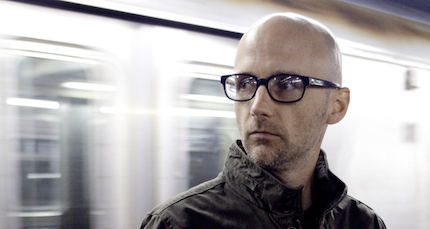
“On a very personal level,” he says in the same interview with the LA Weekly. “I hate the idea of a vindictive god, and I hate the idea of people being punished for their sins, because it's so hard just being human. If life is short and brutish and difficult […] People feel bad enough as it is!”. In his essay on “Animal Rights”, Moby recalls Christ’s words “judge not lest you be judged. He says: “I challenge the Christian Right to work out their own salvation in fear and trembling and not worry about the supposed sins of others”. His religion now seems to be that of tolerance, together with a strange acceptance of his doubts.
“A part of me is envious of people who can define themselves strictly and conveniently,” he says, "but for myself, I just can't. My sense of identity is there, but it's sort of nebulous.” Despite his Marxist militancy in the past, his vegetarian fervour and his addiction to pornography, Moby insists on ambiguity.
A pastor who knows him in New York, Paul Raushenbush, says that Moby has reached the conclusion that he cannot call himself a Christian while that ambiguity persists. But Moby says that he prays all the time, he simply prays that God will’s be done and not his own. He hopes that in that way God will answer his prayers. So do I.

Las opiniones vertidas por nuestros colaboradores se realizan a nivel personal, pudiendo coincidir o no con la postura de la dirección de Protestante Digital.
Si quieres comentar o